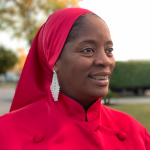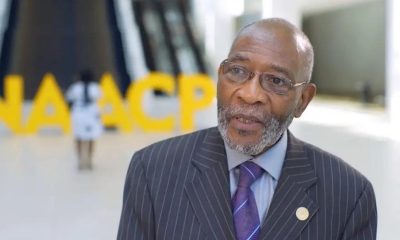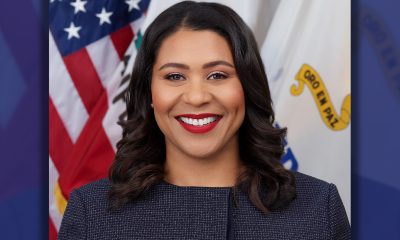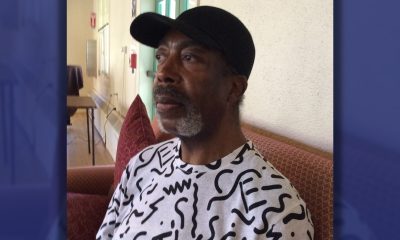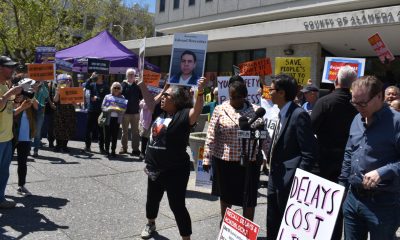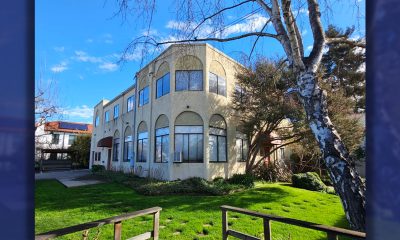Activism
Black Women Revolt: Bay Area Org Gets to Grassroots of Domestic Violence
Considering itself a grassroots community activist movement, Black Women Revolt was founded in 2020. The group’s founders, Geoffrea Morris and Lyn-Tise Jones — who are sisters — say they both felt a strong desire to set up an organization in San Francisco offering help to Black women dealing with the suffering and setbacks domestic violence can cause.
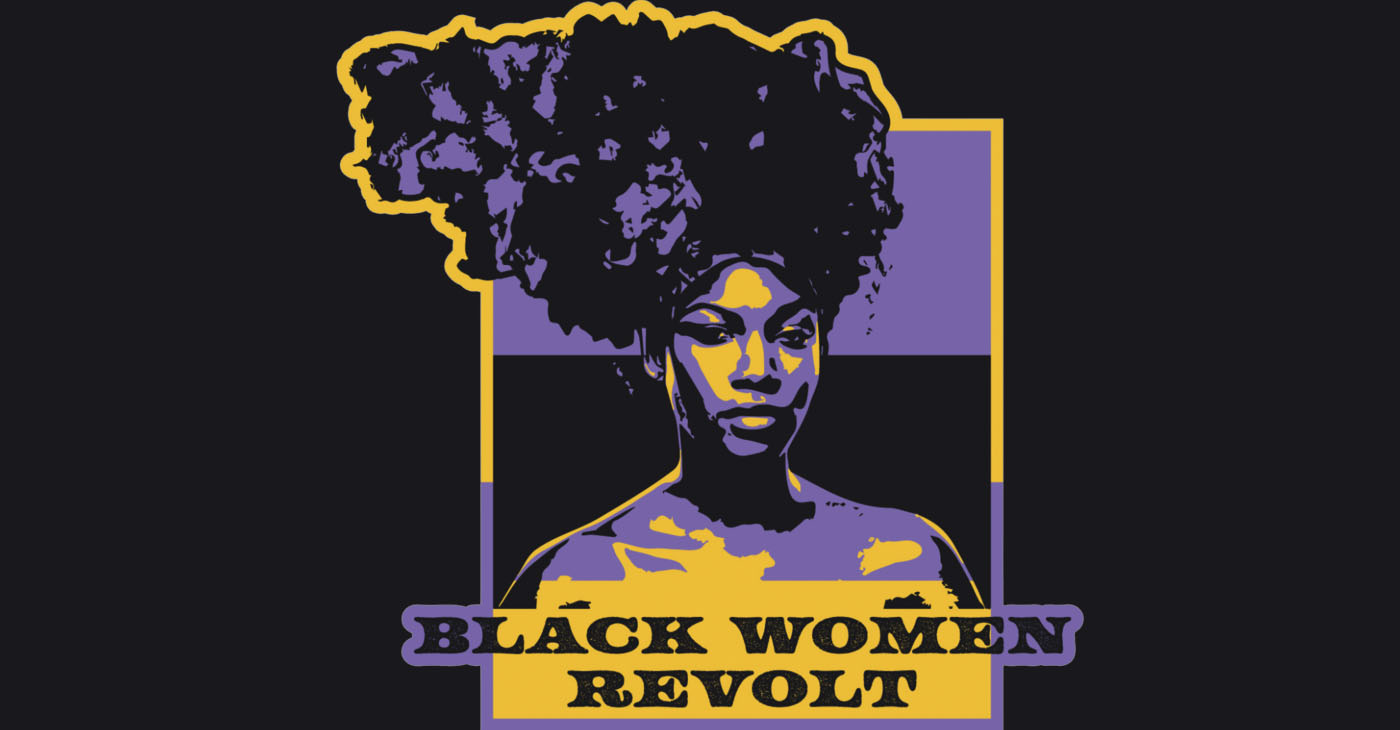
By Charlene Muhammad | Special to the Oakland Post
In the San Francisco Bay Area, the Black Women Revolt Resource Center is dedicated to creating awareness about domestic violence and solving it — with a specific focus on women of color.
Considering itself a grassroots community activist movement, Black Women Revolt was founded in 2020. The group’s founders, Geoffrea Morris and Lyn-Tise Jones — who are sisters — say they both felt a strong desire to set up an organization in San Francisco offering help to Black women dealing with the suffering and setbacks domestic violence can cause.
“I think that Black women and Black families in particular really suffer in silence,” said Black Women Revolt Resource Center’s executive director Paméla Tate, an author and domestic abuse awareness advocate.
“And that’s not to say that other Brown families don’t. Latino families do, as well as Asian families. But, particularly, African Americans here in the U.S. have suffered with domestic abuse and intimate partner violence, since we were brought to this continent,” Tate continued.
Morris was inspired to step in the gap after she found out that there were no organizations providing treatment, care, counseling, and other social and health services to Black women dealing with domestic violence. Jones, her younger sister, also felt moved to create a program that would help Black mothers and children dealing with trauma.
So, the sisters teamed up to create what is now known as The Black Women Revolt Resource Center in San Francisco.
According to Morris and Jones, the organization serves its clients and community in several ways, including increasing awareness about the impact of intergenerational violence in the Black community; removing barriers for Black women who have experienced domestic abuse to receive access to culturally sensitive resources; and providing a designated space with resources specifically for Black women in San Francisco to help educate and heal as they recover from abuse.
Tate has trained over 100 community members and domestic abuse agency staff, preparing them to work as advocates throughout California, according to the agency.
The San Francisco Family Violence Council’s 2020 report cites clear racial disparities across all three forms of family violence. It disproportionately impacts African American and Latinx populations: 4 out of 10 substantiated child abuse cases involved Black children and 1 in 3 involved Latino children; 28 % of dependent adult abuse victims were Black; and more than half of domestic violence victims were Black or Latino.
“The lack of choices around marrying a partner, mating with a partner, and how they were treated on a daily basis, in terms of work expectations, sexual ideation, has all been put upon Black women, and I think, because we had to take it, when we got here, and centuries later, we’re still kind of taking it,” said Tate.
Part of the problem, observes Tate, is that there is a culture of secrecy in the Black community. Many Black women live in households where problems aren’t discussed outside of the family unit. There are also unspoken rules that encourage silence around mental health issues and physical abuse.
“We just don’t talk about it. So, we function in these isolated silos, and then once someone shares that something has happened to them, people are not necessarily always supportive.” Said Tate.
“One, because they don’t know that there are resources available to assist; two, because again, you’ve broken the code of silence; three, because this is kind of how we’ve been conditioned to live and respond. And four, I think, would just be because it’s not normal to talk about,” Tate went on, adding that the Black Women’s Revolt Resource Center is not yet fully operational and still awaiting funding to expand its work.
Tate says one class at the center trains batterer intervention staff, arming them with information about anger management techniques they can share with clients.
Recently, the center launched another class exclusively for advocates, who will answer crisis lines and work directly with domestic abuse survivors. Soon, it plans to start training outreach staff, who will be working on launching a youth advisory council. The aim is to get some teens to jump start conversations with teenagers, who represent a rising population of people encountering intimate partner violence and domestic violence, according to Tate.
While there is much work to be done to lower the startling number of DV cases in the Bay Area, the founders and director of the resource center say they are making a difference in the lives of survivors of domestic abuse.
To solve domestic violence, talk about it, said Tate.
“A lot of people don’t discuss domestic violence. A lot of people don’t even know the actual definition of domestic violence, meaning it’s more than just hitting. I think conversations and a lack of judgment would be a great start,” she said.
Activism
S.F. Black Leaders Rally to Protest, Discuss ‘Epidemic’ of Racial Slurs Against Black Students in SF Public School System
Parents at the meeting spoke of their children as no longer feeling safe in school because of bullying and discrimination. Parents also said that reported incidents such as racial slurs and intimidation are not dealt with to their satisfaction and feel ignored.

By Carla Thomas
San Francisco’s Third Baptist Church hosted a rally and meeting Sunday to discuss hatred toward African American students of the San Francisco Unified School District (SFUSD).
Rev. Amos C. Brown, president of the San Francisco NAACP and pastor of Third Baptist Church, along with leadership from local civil rights groups, the city’s faith-based community and Black community leadership convened at the church.
“There has been an epidemic of racial slurs and mistreatment of Black children in our public schools in the city,” said Brown. “This will not be tolerated.”
According to civil rights advocate Mattie Scott, students from elementary to high school have reported an extraordinary amount of racial slurs directed at them.
“There is a surge of overt racism in the schools, and our children should not be subjected to this,” said Scott. “Students are in school to learn, develop, and grow, not be hated on,” said Scott. “The parents of the children feel they have not received the support necessary to protect their children.”
Attendees were briefed last Friday in a meeting with SFUSD Superintendent Dr. Matt Wayne.
SFUSD states that their policies protect children and they are not at liberty to publicly discuss the issues to protect the children’s privacy.
Parents at the meeting spoke of their children as no longer feeling safe in school because of bullying and discrimination. Parents also said that reported incidents such as racial slurs and intimidation are not dealt with to their satisfaction and feel ignored.
Some parents said they have removed their students from school while other parents and community leaders called on the removal of the SFUSD superintendent, the firing of certain school principals and the need for more supportive school board members.
Community advocates discussed boycotting the schools and creating Freedom Schools led by Black leaders and educators, reassuring parents that their child’s wellbeing and education are the highest priority and youth are not to be disrupted by racism or policies that don’t support them.
Virginia Marshall, chair of the San Francisco NAACP’s education committee, offered encouragement to the parents and students in attendance while also announcing an upcoming May 14 school board meeting to demand accountability over their mistreatment.
“I’m urging anyone that cares about our students to pack the May 14 school board meeting,” said Marshall.
This resource was supported in whole or in part by funding provided by the State of California, administered by the California State Library via California Black Media as part of the Stop the Hate Program. The program is supported by partnership with California Department of Social Services and the California Commission on Asian and Pacific Islander American Affairs as part of the Stop the Hate program. To report a hate incident or hate crime and get support, go to CA vs Hate.
Activism
Oakland Ambassadors Strengthen Ties and Aid Efforts in Ghana
Oakland natives and esteemed members of the African American Sports and Entertainment Group (AASEG), Jonathan P. Jones and Dr. Maritony Efua Jones, recently embarked on a significant journey to Ghana as guests of the World Martial Authority Ghana. This trip signifies a crucial opportunity to bolster partnerships, explore new avenues of collaboration, and contribute to impactful initiatives in Ghana.
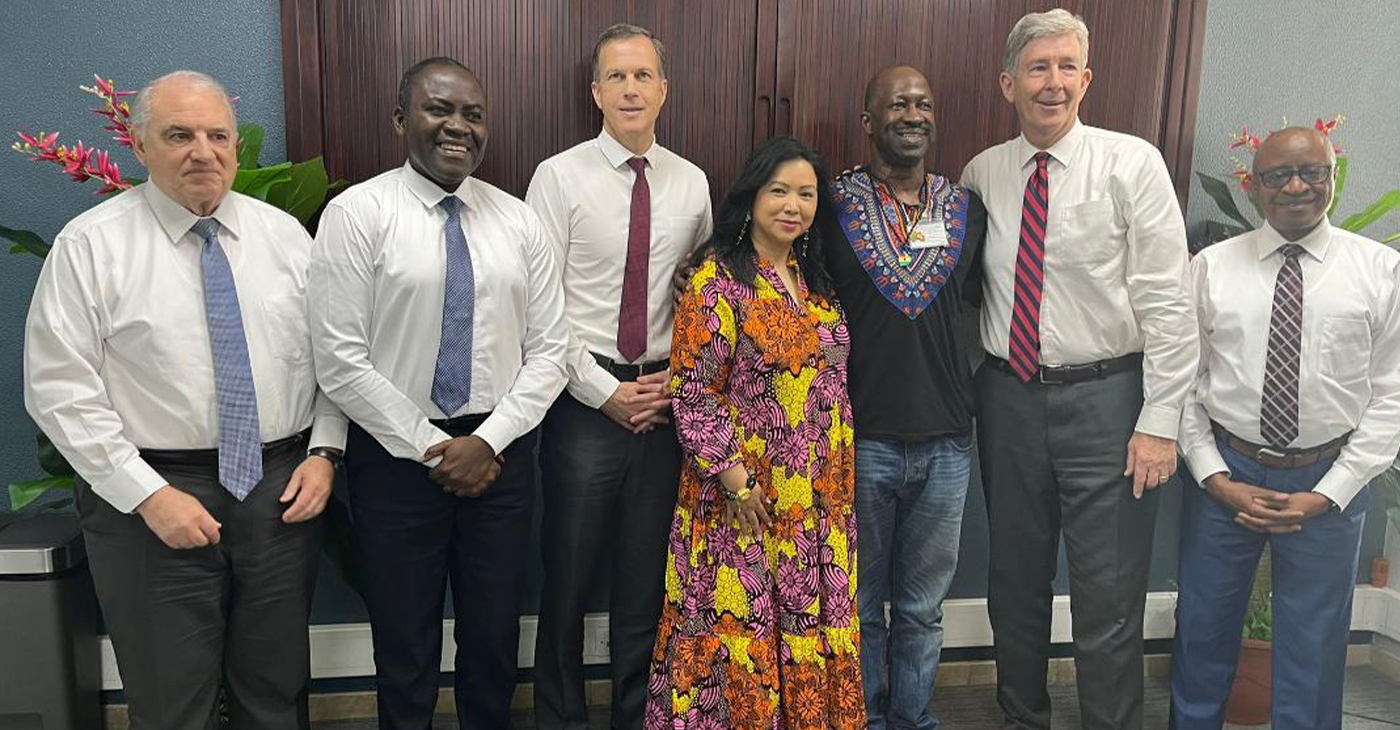
By Post Staff
Oakland natives and esteemed members of the African American Sports and Entertainment Group (AASEG), Jonathan P. Jones and Dr. Maritony Efua Jones, recently embarked on a significant journey to Ghana as guests of the World Martial Authority Ghana.
This trip signifies a crucial opportunity to bolster partnerships, explore new avenues of collaboration, and contribute to impactful initiatives in Ghana.
Upon their arrival at Katota Airport in Accra, Ghana, the Joneses were warmly received by His Royal Majesty Okatakyie Asafo Boakye III, the distinguished king of Sanzule Kingdom in the Eastern Nzema, and Etse Nyamedi of World Martial Authority, Ghana.
Nyamedi accompanied the Joneses to the city of Mepe, which had recently experienced flooding, to assess damages and engage with local leaders, elders, and youth regarding the city’s urgent needs after major floods last fall.
Key concerns and priorities identified by the community include comprehensive flood mitigation measures, agricultural support, housing initiatives, educational enhancements, improved healthcare access, and the development of communal recreational spaces.
The Joneses were also graciously invited to meet with leaders of The Church of Jesus Christ of Latter-day Saints at their headquarters in Accra. This meeting provided insights into ongoing humanitarian efforts in Ghana and explored avenues for collaboration to further assist Ghanaian communities.
The LDS leaders shared their prompt response to the recent flood, demonstrating their commitment to humanitarian aid by dispatching substantial supplies including medical provisions, sanitation items, blankets, and food to assist flood victims just four days after the disaster.
Additionally, Boakye extended a special invitation to the Joneses to his palace, where they were pleasantly surprised with a heartfelt recognition ceremony. Maritony Jones was honored as the Queen Mother of the Sanzule Kingdom in acknowledgment of her dedicated work, while Jonathan Jones was lauded and welcomed as the ambassador of the Sanzule Kingdom, symbolizing a meaningful homecoming to their ancestral land.
The visit not only strengthens ties between Oakland and Ghana but also underscores the collaborative spirit and commitment to meaningful progress and humanitarian endeavors shared by all involved parties.
Activism
Calif. Anti-Sex Trafficking Advocates Discuss Competing Bills, Strategies
Advocates from across California are challenging state officials and community leaders to support legislation that provides resources and services for survivors and victims of human trafficking, as well as assistance as they transition back into civil society. Some of those advocates are also calling for more effective state policy to curtail trafficking, a crime that has an outsized impact on Black children, particularly girls.
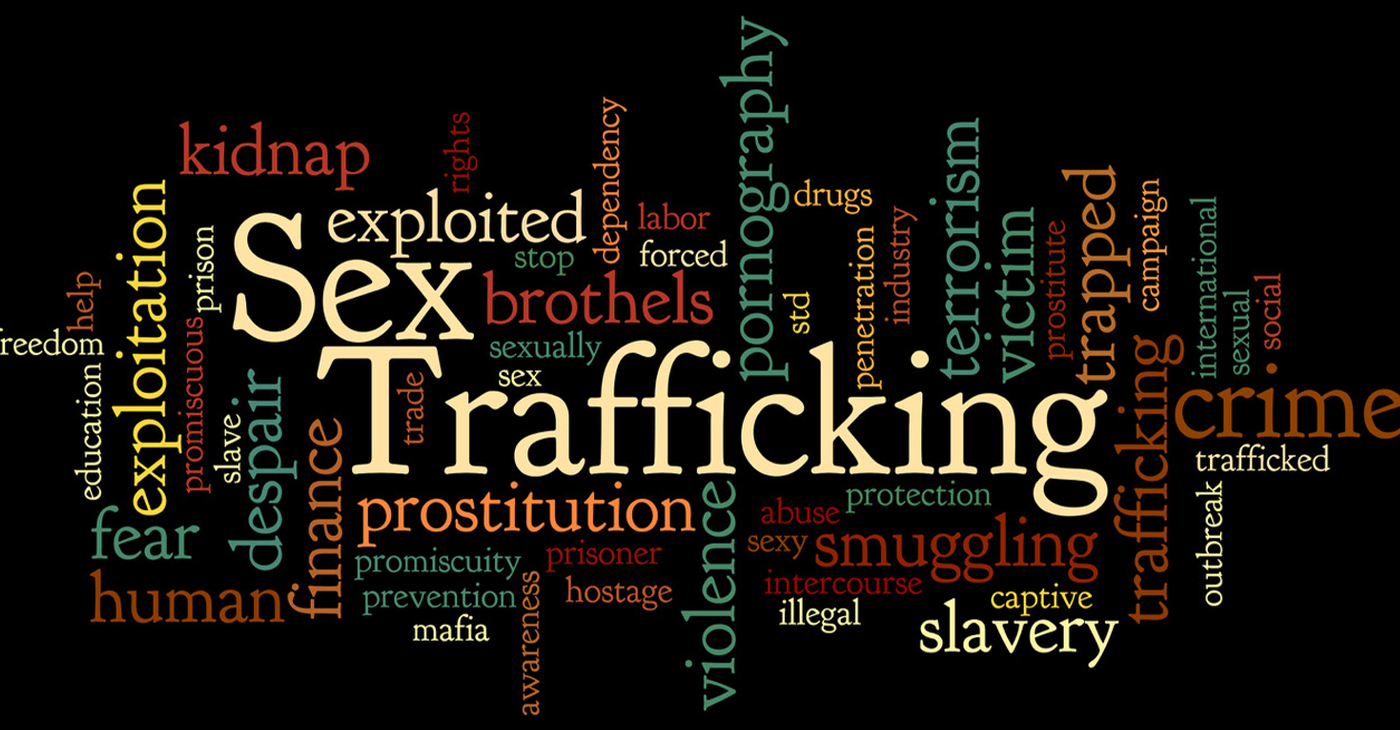
By Bo Tefu, California Black Media
Advocates from across California are challenging state officials and community leaders to support legislation that provides resources and services for survivors and victims of human trafficking, as well as assistance as they transition back into civil society.
Some of those advocates are also calling for more effective state policy to curtail trafficking, a crime that has an outsized impact on Black children, particularly girls.
According to the FBI, a report covering a two-year period found Black children accounted for 57% of all juvenile arrests for prostitution. In addition, 40% of sex trafficking victims were Black and 60% of those victims had been enrolled in the foster care system.
“It is time to hold the perpetrators who take advantage of our children accountable,” said the Rev. Shane Harris, a San Diego-based activist, former foster youth and founder of the Peoples Association of Justice Advocates, (PAJA), a national civil rights organization and policy think tank.
“It is time to send a thorough message that if you seek to buy a child for sex, you will pay the highest criminal penalties in this state,” added Harris who was speaking at a rally at the State Capitol earlier this month. Harris was speaking in support of Senate Bill 1414, authored by Sen. Shannon Grove (D-Bakersfield), which calls for people who buy sex from minors to be punished with a felony. The punishment includes a two-year prison sentence and a $25,000 fine.
Harris said the PAJA is the only civil rights organization in the state that supports SB 1414.
Harris urged other Black-led groups who favor anti-trafficking legislation more focused on criminal justice reforms (as opposed to stiffer penalties), to “join the movement.”
Many of those civil rights groups fear that SB 1414 could lead to the incarceration of more Black youth.
Those sentiments were echoed in a panel discussion organized by Black women advocates on April 26 to examine the cause and effects of human trafficking in California’s Black communities. The virtual event was hosted by the Forgotten Children, Inc, a faith-based nonprofit that advocates for survivors and victims of human trafficking through anti-trafficking campaigns and initiatives.
Panelists shared the psychological impact of sexual exploitation on youth and children in the long term.
Author and educator Dr. Stephany Powell shared statistics and information revealing that African American women and girls are the most trafficked nationwide.
Powell, who serves as the senior advisor on law enforcement and policy at the National Center on Sexual Exploitation said that national data indicates that sex trade survivors are disproportionately women of color. She stated that male survivors often go unnoticed because boys rarely report trafficked crimes.
Powell said that decriminalizing prostitution in California could increase human trafficking. She argued that Senate Bill 357, authored by Sen. Scott Wiener (D-San Francisco), which was signed into law in 2022 and legalized loitering for prostitution, caused a surge in street-level prostitution.
Panelist and psychologist Dr. Gloria Morrow shared opposing views on decriminalizing prostitution. She said that decriminalizing prostitution could help survivors gain access to state resources and support.
Despite opposing views, Powell and Morrow agree that the Black community needs resources and educational programs to address human trafficking.
-

 Community3 weeks ago
Community3 weeks agoFinancial Assistance Bill for Descendants of Enslaved Persons to Help Them Purchase, Own, or Maintain a Home
-

 Business3 weeks ago
Business3 weeks agoV.P. Kamala Harris: Americans With Criminal Records Will Soon Be Eligible for SBA Loans
-

 Activism3 weeks ago
Activism3 weeks agoOakland Post: Week of April 10 – 16, 2024
-

 Community3 weeks ago
Community3 weeks agoAG Bonta Says Oakland School Leaders Should Comply with State Laws to Avoid ‘Disparate Harm’ When Closing or Merging Schools
-

 Community2 weeks ago
Community2 weeks agoRichmond Nonprofit Helps Ex-Felons Get Back on Their Feet
-

 Community2 weeks ago
Community2 weeks agoOakland WNBA Player to be Inducted Into Hall of Fame
-

 Activism1 week ago
Activism1 week agoOakland Post: Week of April 24 – 30, 2024
-

 Community2 weeks ago
Community2 weeks agoRPAL to Rename Technology Center for Retired Police Captain Arthur Lee Johnson

